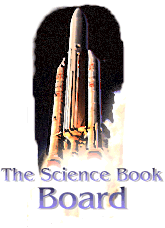![]()
 |
|
|
|
EDITORIAL INFORMATION Science at the Bar is the first book to examine how two powerful American institutions interact with each other. Jasanoff argues that the courts do not simply depend on scientific findings for guidance-they actually influence the production of science and technology. With its lucid analysis of both scientific and legal modes of reasoning, and its recommendations for scholars and policymakers, this book will be indispensable for anyone who hopes to understand the changing configurations of science, technology, and the law in our litigious society. (Extracted from the back cover).
GENERAL TABLE OF CONTENTS
OUR REVIEW There is no doubt that science and technology are the true engine on which our world progresses. This is specially true in the United States, the nation that spends most money in technological and scientific research. And it also is in this country where science and the law have had the most problems to interact among themselves. Sheila Jasanoff devotes this book to examining precisely how this interaction takes place, describing for instance the trouble judges have when it comes to establishing when science must be defended or prosecuted for what it carries out. The legal status of the actions of scientific progress, as is the case of genetic engineering, is not always clear, so it happens that science and law are to approach one another. The author also reviews interesting aspects such as that of intellectual property, sociological changes caused by science, legal arguments, etc. |
|||
![]()
Main Page | What's New | Reviews | Indexes | Links